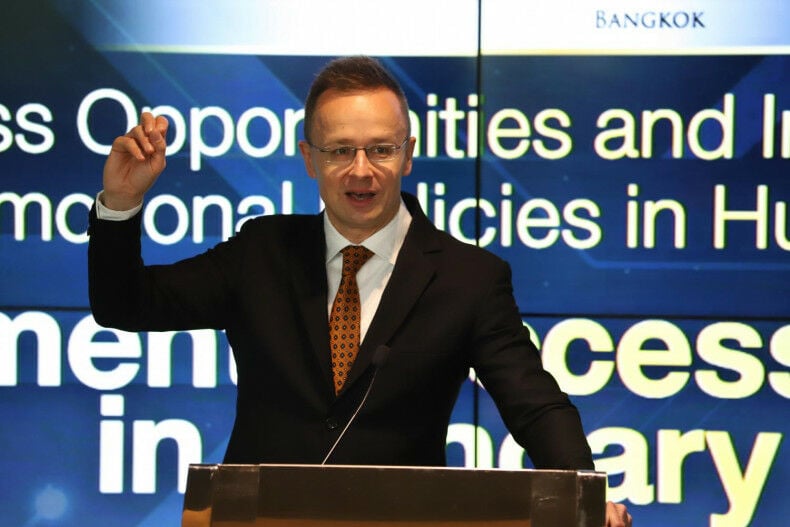Boosting economic growth: Thailand-Hungary relationship

Hungary seeks to cultivate a stronger bilateral relationship with Thailand as part of the Central European country’s objective to achieve 4% economic growth in the current year, according to Péter Szijjártó, the country’s Minister of Foreign Affairs and Trade.
Trade between Thailand and Hungary hit a new high last year, exceeding US$730 million (approximately 26 billion baht). Thailand made significant investments in Hungary’s food and hospitality sectors, contributing to this record-breaking figure. During his visit to Bangkok, Szijjártó highlighted the increasing interest of Hungarian companies in the Thai medical and pharmaceutical markets.
He also pointed out that tourism between the two nations has seen a twofold increase. Over 10,005 Thai citizens visited Hungary, while more than 30,000 Hungarians travelled to Thailand last year. As part of efforts to boost tourism, Szijjártó revealed that he has encouraged Thai AirAsia to consider launching a flight route to Hungary.
In 2023, Hungarian exports to Thailand saw an increase of 9%, establishing Thailand as Hungary’s 11th-largest business partner. However, Thai exports to Hungary were triple the amount that Hungary exported to Thailand. This data was provided by the Hungarian Embassy in Bangkok as part of a response to a Bangkok Post inquiry.
The traditional sectors for trade between the two nations are food, hospitality, automotive and medical. The embassy acknowledged that there are plans to enhance bilateral trade relations by collaborating more closely in the defence sector.
Szijjártó further revealed that Hungary is striving to speed up the free trade agreement negotiations between Thailand and the European Union. These negotiations have recently resumed. In addition, discussions are being initiated regarding a potential visa facilitation agreement between the EU and Thailand.
Foreign direct investment
Foreign direct investment inflows into Hungary were at a record high of 6.5 billion euros in 2022. This figure climbed to 13 billion euros last year. Approximately 82% of all investments last year originated from Asian countries, namely China, South Korea and Japan.
The automotive sector is a key player in Hungary’s economy. Hungary is the sole country, apart from Germany and China, where all three top-tier German automakers have a factory each. Mercedes-Benz and BMW Group are expanding their manufacturing capacities in Hungary, while Suzuki Motor’s only European factory is also located in the country.
Additionally, Chinese automobile manufacturer, BYD, recently selected Hungary as the location for its first European plant, reported Bangkok Post.
According to Szijjártó, Hungary boasts the most stable political system in Europe, having been governed by a single-party government for the past 14 years. The country’s corporate income tax rate is a competitive 9%, the only single-digit rate in Europe. Hungary also provides attractive cash incentives for investors, offering to refund up to 60% of their investment based on the developmental level of the specific region in which they choose to invest.
Latest Thailand News
Follow The Thaiger on Google News:


























